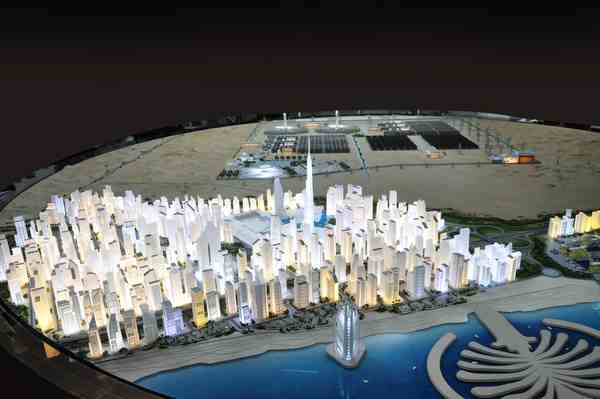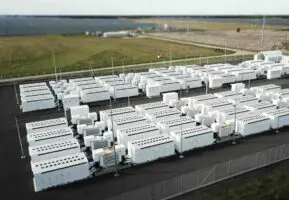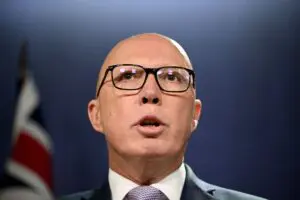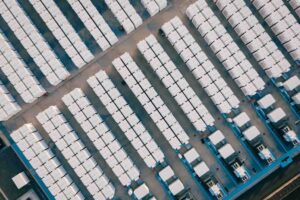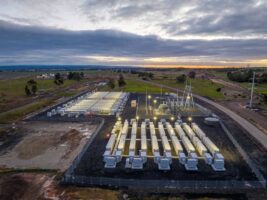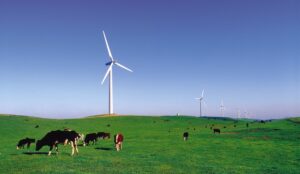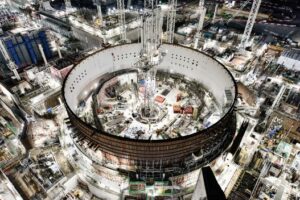It should be a little ironic – given the dramatic plunge in the oil price that is said to have been driven by Saudi Arabian supply tactics – that a Saudi company should set two global records for cheap solar power in the past two weeks.
But to energy analysts it is yet another sign of the energy transition taking place across the world, and one that could be accelerated, rather than slowed, by the collapse in the oil price because of the cancellation and deferral of tens of billions of dollars in uneconomic fossil fuel reserves.
ACWA Power, a water and power developer based in the Saudi capital Riyadh, last week won the world’s largest ever solar tender with the cheapest ever price for a large scale solar project.
It will build – with the help of Spanish group TSK and technology from US-based First Solar – a 260MWp solar PV plant at the Mohammed Rashid Al Maktoum Solar Park in Dubai, at a cost of just $US0.058/kwh, of $US58.4/MWh.
That’s how much it will receive as a fixed tariff over 25 years for what will be – for the moment – the largest solar plant in Middle East. The price it bid is 20 per cent cheaper than the previous benchmark for solar tenders. What’s more, it is 30 per cent cheaper than the price of gas that is currently used for nearly all of the electricity generation in the United Arab Emirates.
A week earlier, ACWA was part of a consortium that won a tender in South Africa for the construction of that country’s first solar tower plus storage facility – a 100MW facility that will be a virtual carbon copy of the 110MW Crescent Dunes solar plus storage plant in Nevada that is nearing completion.
It too, is using technology from a US company, Solar Reserve. The details of the South African contract price have not yet been released, but sources say that it is below the $US135/MWh to be paid to Crescent Dunes by the Nevada utility. The significance of that is that the South African facility will be built with no subsidy, while Crescent Dunes received significant loan guarantees from the US government to lower the cost of capital.
The significance of the winning tenders could not be more stark. The Saudis – long with the oil-rich Gulf states and other Middle Eastern countries – are not only likely to win the oil price war – their vast reserves can be exploited at a fraction of the price of new discoveries elsewhere – they may also win on renewables too.
The Saudi have a specific plan to invest more than $40 billion in solar over coming years so it can sell more oil on the international market. The Gulf states have a similar goal to diversify. It simply makes economic sense, given their huge power needs, to deal with lavish lifestyles, soaring heat, and desalination, and the International Renewable Energy Agency said this weekend that investment in renewables could save the United Arab Emirates, where the Dubai plant will be located, up to $2 billion a year.
Energy analysts say there could not be a clearer sign of the energy transition that is taking place around the world – one marked by renewable energy displacing fossil fuels, and the plunge in the oil price forcing the cancellation of tens of billions of high priced oil projects.
As Mark Lewis, from Kepler Chevreux, noted of the Dubai deal: “This is a major breakthrough in the oil-fired Emirates, and a clear demonstration of the ongoing global energy transition. We think this is a landmark deal both in terms of the extremely competitive cost at which the project will generate power and the potential for a much greater take-up of renewables in countries that have so far been slow to embrace them. “
Lewis noted that the agreed price – in EU currently terms at €50/MWh – is not just a new milestone in solar pricing, it compares extremely favourably, for example, with the guaranteed real-terms price of £92.5 (€120/MWh) over 35 years that the UK government has offered for the construction of the new Hinkley Point C nuclear power plant.
“Over the next two decades we see the global energy transition being driven by the ever-increasing competitiveness of renewables versus fossil fuels, and deals such as this are a clear indication of this competitiveness already today.
“Over time, as renewable-technology costs continue to come down and economies of scale continue to increase, the relative competitiveness of renewables in the global energy mix will only increase further.”
ACWA CEO Paddy Padmanathan said in a statement that Dubai had a clear strategy to diversify its energy mix with renewable energy, and specifically solar, playing a key role. “This when combined with a politically stable environment and the availability of low-cost finance means that solar PV technology becomes commercially cost-effective,” he said.
The project is the second phase of the development of the Dubai solar park, which will grow to 1,000 MW of solar electricity over time.
In South Africa, the Redstone project will be the first of its kind in Africa. It will include 12 hours of full load energy storage, meaning it will be readily dispatchable, even after the sun has set.
“The Redstone project marks an important technology advancement for South Africa in solar power,” said SolarReserve’s CEO Kevin Smith. “Due to the fully integrated thermal energy storage, the plant will provide dispatchable power on-demand, just like conventional coal, oil, nuclear or natural gas-fired power plants, but without the harmful emissions or hazardous materials and without any fuel cost.
In addition, the project’s delivered electricity price is the lowest of any Concentrating Solar Power project in the country to date.” Smith added. The Redstone Solar Thermal Power Project will be located in Postmasburg, near Kimberley in the Northern Cape Province, adjacent to the 75 MW Lesedi and 96 MW Jasper photovoltaic (PV) solar power projects successfully developed by SolarReserve and its investment partners. Together, the three projects comprise the world’s first combined CSP and PV solar park with a total of 271 MW of generating capacity.
As for the oil industry, and their huge reserves, the outlook is currently looking poor. Oil sands projects in Canada, which need an oil price of between $80 and $105 a barrel because of their massive up front costs, are being deferred or cancelled, and so are projects elsewhere in the world.
Canadian Natural Resources (CNR) has cut its 2015 capex budget by nearly one third, or $US2.6 billion, Shell stopped work on its Pierre River mine last February, Total cancelled its $11bn Joslyn project last May, and Statoil deferred its Corner in-situ project in November).
Canada’s Financial Post last week quoted the consultant Wood Mackenzie as saying that if oil prices remain at current levels or fall further from here up to $12 billion of investment across all new Canadian oil-and-gas projects could be deferred in 2015, $20 billion in 2016, and $27 billion in 2017. That is $US60 billion in a single country. Arctic oil drilling has also been put on hold, and so have some deepwater reserves, as this table below underlines.

